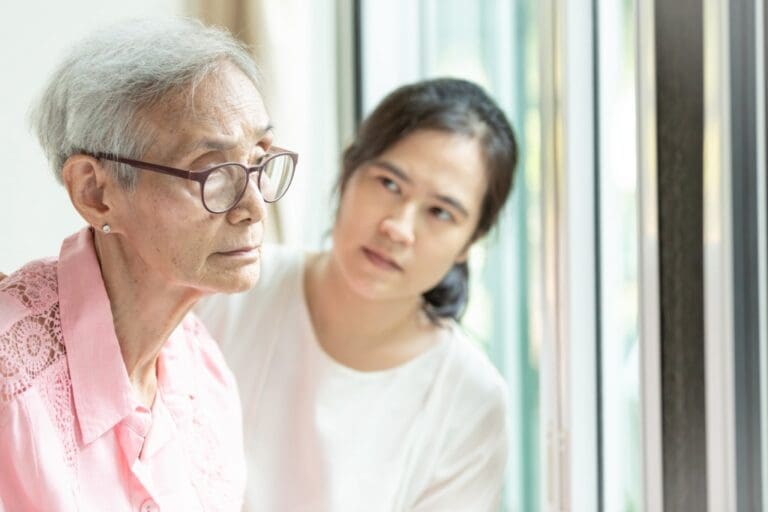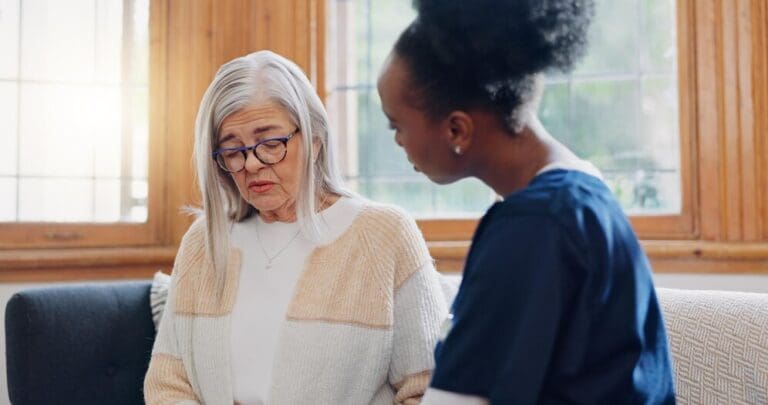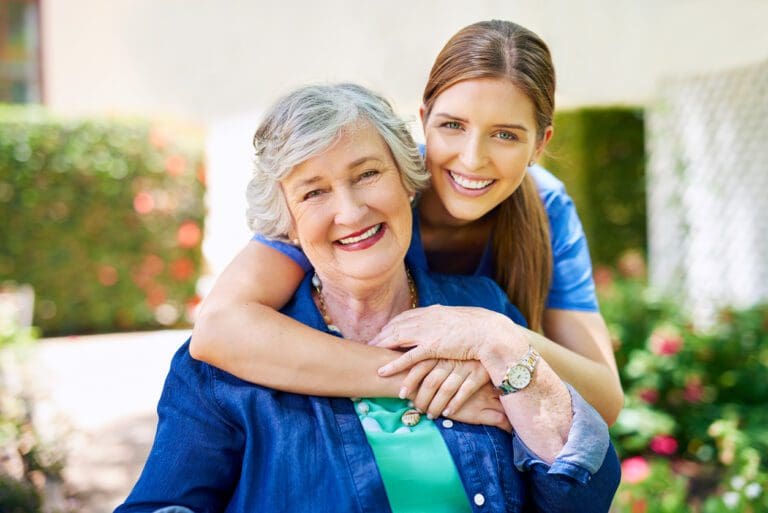Grieving Loss of Independence

Grieving Loss of Independence
Sami – Rosie’s Uncle
Psychologist Kubler Ross defines the five stages of grief as anger, denial, bargaining, depression, and acceptance.
It was surprising to see my uncle follow the stages of grief sequentially and only once for loss of his independence.
Surrounded by Uncle Sami’s model airplanes, each a testament to his once boundless spirit of adventure, symbol of his imagination and creation of possibilities, that day seemed more like relics of a life that was slowly slipping away from his grasp.
As I watched him, it became clear that the stages of grief, as described by Kubler Ross, were becoming a roadmap through the turbulent journey of his declining independence.
Denial wrapped around Uncle Sami like a dense fog, making it difficult for him to see the truth of his situation. “I don’t need these meds forever,” he’d stubbornly insist, his disbelief ringing clear in his voice.
“There is no way I need to take this medication for the rest of my life. I will take it for a month. I’ll get better and then stop it.” he’d confidently assured me. Brushing aside both my worries and the doctor’s advice as if they were mere nuisances. It was as though he thought he could simply wave away the reality of his condition.
Anger stormed through Uncle Sami like a tempest, confined within the walls of his room adorned with model planes. “Why is this happening to me? What did I do to deserve this?” he bellowed, his frustration bursting forth in tight fists and the occasional thud against the wall.
The model planes, his silent companions, remained untouched by the chaos, their calm presence sharply contrasting with the whirlwind of emotions he was experiencing.
I on the other hand was shaking in my boots and marched right out of his room, giving him much needed alone time to get to the next stage of grief.
Bargaining ushered in a temporary calm, akin to the deceptive quiet at the storm’s heart. Uncle Sami’s calls became my daily liturgy, every conversation woven with “what ifs” and “maybes.”
“Rosie, what about this new therapy I found online? Can we give it a shot?” he’d entreat, grasping at every possibility, trying to barter with fate itself. I listened, dove into research, and gently laid out the realities, all the while knowing the odds, yet empathizing deeply with his clutch at hope.
He would try to negotiate relentlessly with me or the doctor to find alternatives or compromises. When he was going through this stage, the demands on my time were unreasonably high. He would call me and say, “I just read this on the Internet. Can you call your friend Dr. Paul and ask him about this procedure? Also, could you look at these websites? I don’t know how to use forums well. Can you post these questions on the site for me? Can you call the drug company and ask them about these side effects?”
He would end his long list of “to-dos” for me with this statement, “I know I am onto something here. If I do these things, I am sure I can negotiate with my doctor about not being on these drugs. You will see, I will be fine without them.”
Once, my uncle figured out that there was no bargaining out of his health crisis and that he had to resign to a new reality for his body, he then became silent, refused visitors, stopped taking my calls and spent much of the time mournful and sullen. Many times, I took a flight to see him only to be told, “What was the point in coming and wasting your vacation and hard-earned money? I’m going to die soon!” or he would start a long “poor me” monologue that inevitably began with “I miss the way …”
Depression marked the most solemn phase of Uncle Sami’s journey, like a grounded aircraft long before its final flight. The man who once filled my days with stories of daring adventures and thrilling escapes now barely spoke above a whisper, his once bright spirit fading to match the dim light of his room.
Acceptance arrived like a gentle descent after a long, tumultuous journey. Uncle Sami’s resistance softened, and with it, I found the space to offer the care he had come to reluctantly recognize as necessary.
Our conversations transformed, moving from defiance to shared memories, from frustration to a mutual appreciation for the moments we still had together. I saw his spirit come back one day when he said, “Rosie, do you remember the time we put together that Mustang model?” a hint of a smile gracing his face, signaling the storm of his grief was yielding to the serene acceptance of his present situation.
Throughout each stage, I remained his constant co-pilot, steering Uncle Sami through his emotional storms with empathy and patience. Our bond, though weathered by the journey, grew stronger, standing as a testament to the enduring nature of the human spirit and the healing power of love amidst life’s greatest challenges.

The Lonely Path
Meredith and Victor’s Story
Surrounded by Uncle Victor’s old hiking gear and maps, each symbolizing the adventures he once loved, the room felt heavy with loss. Victor’s health had deteriorated, making it impossible for him to continue the outdoor escapades that defined his life.
Denial
Victor’s denial was palpable. “Meredith, this is just temporary. I’ll be back on the trails in no time,” he said, his voice filled with forced optimism. He refused to acknowledge the severity of his condition, brushing off both Meredith’s concerns and the doctor’s warnings.
“Uncle Victor, the doctors said you need to take it easy,” Meredith gently reminded him, but he waved her off.
“Nonsense. I’ll be fine soon. Just a bit of rest,” he insisted, trying to hold onto the illusion of his old life.
Days turned into weeks, and Meredith watched as Victor stubbornly attempted to resume his routine. He would put on his hiking boots and stare longingly at the door, only to sit back down with a frustrated sigh. It broke Meredith’s heart to see him struggle with his new limitations.
Anger
When reality began to set in, anger took hold. “Why is this happening to me?” Victor shouted, slamming his fist on the table. His frustration was a constant undercurrent, erupting in moments of intense rage.
Meredith often found herself retreating to give him space, feeling helpless as he navigated his anger alone. “It’s not fair,” he would mutter, eyes blazing with fury. The once peaceful home was now filled with the echoes of his discontent.
One evening, Meredith heard a crash and rushed to find Victor had thrown his favorite compass against the wall, shattering it. She stood silently in the doorway, not knowing how to console him. His anger was like a storm, unpredictable and fierce.
Bargaining
Victor then turned to bargaining, desperate to find a way out. “Meredith, I read about this new treatment. Can you look into it for me?” he pleaded, clutching at straws.
Meredith spent hours researching and making calls, hoping to find something that would bring him peace. “I’ll see what I can find, Uncle,” she said, though she knew the chances were slim.
“Maybe if I just try harder, follow a new regimen, things will get better,” Victor said, trying to negotiate with fate itself. He would present Meredith with articles and brochures, his hope rekindled with each new discovery.
“Let’s talk to the doctor about these options,” he would suggest, his voice filled with a desperate need for reassurance. Meredith would nod, making notes and setting up appointments, even as she braced herself for the likely disappointment.
Depression
As the futility of his efforts became clear, depression set in. Victor became withdrawn, refusing visitors and avoiding calls. “What’s the point, Meredith? I can’t do anything I love anymore,” he said, his voice hollow.
Meredith visited often, but each time she was met with silence or a dismissive wave. “I miss the mountains, the freedom,” he would say, his spirit broken. The vibrant man who once thrived on adventure now spent his days in a dimly lit room, curtains drawn to block out the world he felt disconnected from.
Despite her efforts to engage him in new activities or simply sit with him, Victor remained distant. Meredith felt the weight of his sadness, knowing there was little she could do to lift it.
Acceptance
Finally, acceptance came slowly. “Meredith, maybe it’s time I accept things as they are,” Victor said one afternoon, a hint of peace in his voice. Their conversations shifted to shared memories and moments of joy.
“Remember that hike we took up Mount Rainier?” he asked, a small smile playing on his lips. Meredith nodded, feeling a sense of relief. They reminisce about past adventures, finding comfort in the memories they shared.
Through every stage, Meredith remained by his side, guiding him with empathy and patience. Their bond grew stronger, proving the enduring human spirit and the power of love in facing life’s hardest challenges. Victor began to explore new hobbies, finding solace in gardening and photography, activities that allowed him to stay connected to nature in a different way.
Meredith helped him set up a small garden in the backyard, where they would spend afternoons planting and tending to flowers. Victor’s spirit slowly rekindled, and though he could no longer hike, he found peace in the simple joys of life.

The Struggle Within
Natalia and Joan’s Story
Natalia stood in her grandmother Joan’s kitchen, filled with the scent of fresh bread and the memories of countless family gatherings. Joan’s arthritis had worsened, making it difficult for her to continue baking, an activity she cherished.
Denial
“Natalia, it’s just a little stiff. I can still bake,” Joan insisted, her hands trembling slightly as she kneaded dough. She refused to admit that her condition was getting worse, clinging to the belief that she could manage on her own.
“Grandma, maybe you should take a break,” Natalia suggested gently, but Joan shook her head.
“I’m fine, dear. Just need to keep moving,” she replied, ignoring the pain.
As the weeks went by, Natalia noticed Joan struggling more. Simple tasks that once took minutes now took hours. Joan’s denial was strong, and she pushed herself to the brink, refusing to accept help.
Anger
As the pain intensified, so did Joan’s anger. “Why can’t I just do what I love?” she snapped, throwing a rolling pin across the counter. Her frustration was evident in every word and action.
Natalia often found herself stepping back, unsure how to help. “It’s not fair,” Joan would mutter, her anger directed at the world and her own body.
One evening, after an especially bad day, Joan yelled, “I hate this! I hate being like this!” Her outburst left Natalia in tears, feeling the brunt of her grandmother’s frustration.
Bargaining
Desperation led Joan to bargaining. “Natalia, there must be some new medication or therapy. Can you help me find it?” she asked, hoping to mingle with desperation.
Natalia spent countless hours researching, making calls, and setting up appointments. “I’ll do everything I can, Grandma,” she promised, even as she knew the options were limited.
“Maybe if I change my diet, or try this new exercise, things will improve,” Joan said, grasping at any possibility.
They tried new diets, exercises, and even alternative treatments. Joan’s hope surged with each new attempt, only to be dashed when the results were not as expected.
Depression
When reality set in, depression took over. Joan stopped baking altogether, her once lively kitchen now silent. “What’s the point, Natalia? I can’t do what I love anymore,” she said, her voice filled with sadness.
Natalia visited daily, but each time was met with a distant gaze or a sigh. “I miss the joy of baking for the family,” Joan would whisper, her spirit dimmed.
Despite her efforts to engage her grandmother in new activities, Joan remained withdrawn. The joy that once filled their home was replaced with a heavy silence, and Natalia felt helpless in the face of Joan’s sadness.
Acceptance
Acceptance came gradually. “Natalia, perhaps it’s time to find new ways to enjoy life,” Joan said one morning, her voice softer but more at peace. Their conversations shifted to new hobbies and ways to stay connected.
“Maybe we can cook together, even if it’s something simpler,” Joan suggested, a small spark returning to her eyes. Natalia smiled, feeling hope.
Through each stage, Natalia remained a constant support, helping Joan navigate her emotions with care and love. Their relationship deepened, proving the resilience of the human spirit and the strength of family bonds in the face of life’s challenges.
Natalia helped Joan discover new activities that brought her joy. They started painting together, transforming Joan’s kitchen into a mini art studio. The process was therapeutic, allowing Joan to express herself in a new way.
Joan also began to write down her favorite recipes, creating a cookbook for Natalia. They spent afternoons reminiscing about family gatherings, each recipe a trip down memory lane. These moments brought back the light to Joan’s eyes, helping her find a new purpose.
Through it all, Natalia remained by her side, ensuring that Joan never felt alone in her journey. Together, they navigated the ups and downs, finding new ways to celebrate life and cherish each moment they had.


